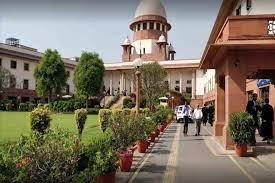The President of India is the head of state and the supreme commander of the Indian Armed Forces. The president is also the formal head of the executive, legislature, and judiciary of India. The president is the head of government in India and has the power to appoint the prime minister and other key members of the government.
The President of India has the following powers:

- The President can appoint the Prime Minister and other members of the Union Cabinet.
- The President can dismiss the Prime Minister and other members of the Union Cabinet.
- The President can appoint the Chief Justice of India and other judges of the Supreme Court of India.
- The President can pardon or commute the sentence of any person convicted of an offence by any court in India.
- The President can issue a Presidential Ordinance if he or she is satisfied that circumstances exist which render it necessary to take immediate executive action.
According to Article 124(2) of the Indian Constitution, the President has the legal authority to appoint Supreme Court justices, but only after consulting with the justices of that court and the judges of the High Court. In accordance with Article 217(1) of the Constitution, the President consults with the Chief Justice of India, the Chief Justice of the State, and the Governor of the State. The court-ordered judgement may also be amended by the President. He may even consult the nation's Supreme Court for guidance on any issue.
The President is not above the law and the Constitution of India does not vest him with any absolute power. The President can only exercise his or her executive powers in accordance with the advice of the Prime Minister or the Council of Ministers.
The President cannot overrule the judgement of the Supreme Court of India. The President can, however, issue a Presidential Ordinance if he or she is satisfied that circumstances exist which render it necessary to take immediate executive action.
Therefore, The
Constitution of India does not give the president the power to overrule the judgement of the Supreme Court. The president can only ask the Supreme Court to review its judgement.